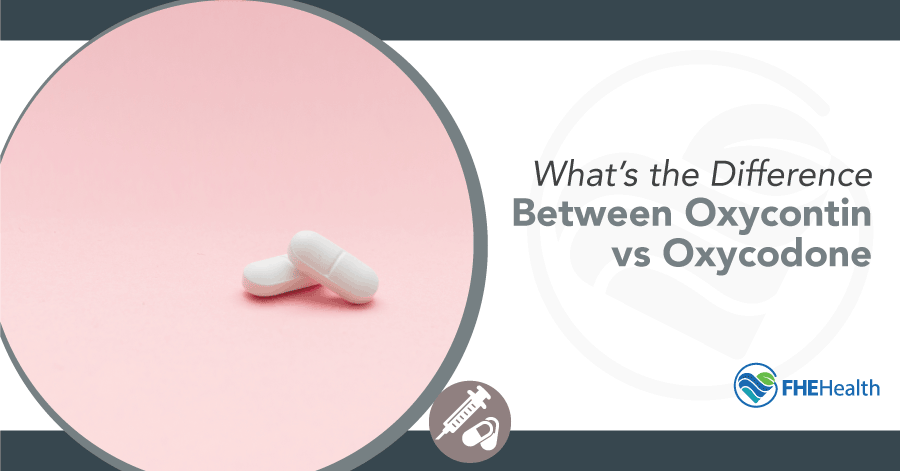
If you don’t know a lot about opioid painkillers, you may have heard the terms OxyContin and oxycodone and thought they were the same thing. In fact, these two drugs sound similar, but there are key differences you need to know. Keep reading for a complete overview on OxyContin vs oxycodone, including why these drugs aren’t interchangeable.
An Overview of OxyContin vs Oxycodone
People feel and experience pain differently. Two people could have the same injury but report different levels of pain. As a result, there are many kinds of drugs to treat pain. When prescribing painkillers for severe or chronic pain, the doctor will assess the patient to understand just how strong a drug they need.
At a quick overview, it’s important to understand the differences between oxycodone vs OxyContin. Essentially, both are versions of the same drug. The active ingredient in both drugs is oxycodone.
The main difference between OxyContin and oxycodone is that OxyContin is stronger because it lasts longer. Therefore, OxyContin is known as a “long-acting” “controlled-release” or “extended-release” painkiller. Both are used to treat moderate to severe pain, but oxycodone is most commonly used for chronic severe pain.
Oxycodone (the immediate-release painkiller) is available as a generic drug under other names. Conversely, the long-acting OxyContin is only available under its brand name.
What Is Oxycodone?
Oxycodone is an orally available opioid painkiller that’s similar to morphine. This drug is most commonly used to treat moderate to severe chronic pain and has a high potential for becoming addictive. As a result, oxycodone is a DEA-controlled substance and should only be used when prescribed by a doctor.
Oxycodone is available in tablet, solution, or capsule form. It offers quick-acting pain relief, with most people feeling the pill’s effects within 20-30 minutes. The pain relief can last between four and six hours. Oxycodone is available under other names, including OxyIR, OxyFast, Roxicodone, Oxaydo, and generic oxycodone. Typically patients only take oxycodone on a short-term basis, usually for three days or less.
What Is OxyContin?
OxyContin is a long-lasting type of oxycodone. Patients only need to take this drug twice daily, and it will release oxycodone continuously throughout a 12-hour period. This slow release is achieved in the OxyContin tablet design. The first layer of the pill offers pain relief in the first 20 minutes, while the inner layers of the pill offer slow, continuous pain relief throughout the remaining 12 hours. OxyContin only comes in an extended-tablet release pill.
OxyContin is a stronger version of oxycodone and is only meant for severe and chronic pain. Patients who take OxyContin typically tried oxycodone and found it didn’t provide enough relief. Usually, OxyContin is given to people with severe pain associated with the last stages of conditions or diseases, such as terminal cancer.
As is the case with oxycodone, OxyContin can be addictive and should only be taken as prescribed.






